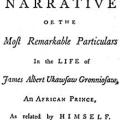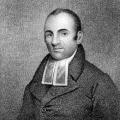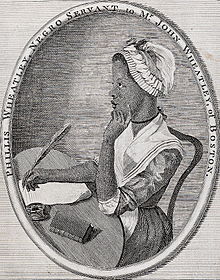33. Young, Gifted, and Black: Phillis Wheatley
Phillis Wheatley astonishes colonial Americans with her exquisite and precocious poetry and reflects on the liberating power of the imagination.
Themes:
• J.C. Shields (ed.), The Collected Works of Phillis Wheatley (Oxford: 1988).
---
• V. Carretta, Phillis Wheatley: Biography of a Genius in Bondage (Athens, GA: 2011).
• M.A. Richmond, Bid the Vassal Soar: Interpretative Essays on the Life and Poetry of Phillis Wheatley (ca. 1753 - 1784) and George Moses Horton (ca. 1797 - 1883) (Washington DC: 1974).
• W.H. Robinson, Critical Essays on Phillis Wheatley (Boston: 1982).
• J.C. Shields, Phillis Wheatley’s Poetics of Liberation: Backgrounds and Contexts (Knoxville: 2008).
• J.C. Shields (ed.), New Essays on Phillis Wheatley (Knoxville: 2011).
• D. Waldstreicher, The Odyssey of Phillis Wheatley: a Poet’s Journeys Through American Slavery and Independence (New York: 2023).







Comments
Name
Speaking of mispelling her name, here you list her as Phillis, in the timeline you list her as Phyllis. Are they both correct?
In reply to Name by Alexander Johnson
Phillis
Oh right, thanks - it should be Phillis. I will fix this on the timeline, thanks for catching it!
Pronunciation
Hi,
I have read that George Whitefield's name should be pronounced "Witfield", with a short first i. (See the Wikipedia article).
By the way, thank you for this wonderful series! I am also looking forward to the episodes on white abolitionists (and slavery advocates) in the main series.
In reply to Pronunciation by S.G.
Whitefield
Oh thanks, I did not realize that but it makes sense. With so many difficult pronunciations in the India and Africana series, you'd think I could've gotten this one right!
Glad you like the series.
Christianity
It's hard for me to judge the poetry of Phillis Wheatley. I can't see it for what it is. My judgement is likely filtered through the suspicion that her work is being pushed at me, by people with an agenda to push works by black people and/or by women. A criticism of the general culture, not this podcast in particular. In another podcast you spoke about how Benjamin Banneker's acheivements have been embelished. Presumably by people motivated to enlarge the acheivements of black people. It might be replied that she was noted at the time, before any agenda to push works by marginalised people. But was the work at the time noted for the work itself, or because it came from a black person and a woman? Given how saturated it is with Christianity, it was unlikely to ever be for me.
What has been striking to me in your series so far, is how many black people have yoked themselves to the Christian God. I find it puzzling. The religion of the slave masters. Promising you heaven in the next life to keep you timid and unrebellious in this one. The religion that preaches that slaves/bondsmen/servants, (however someone chooses to translate it), should obey their masters with open hearts. Colossians 3:22 and Ephesians 6:5-6. The book the white people drew on to justify their actions. You spoke about it with Jupiter Hammon and James Albert Ukawsaw Gronniosaw. I read it in Frederick Douglas. Even the strident and rebellious David Walker appeared firmly in the grip of Christianity.
Wheatley's poem "On being brought from Africa to America", succinctly encapsulates this.
God in his "mercy", could not bring her to Christianity without slavery being part of the package?
I'm not such a non-believer that as a reflex I simply reject everything tinged with Christianity. In episode 35 on Olaudah Equiano, you reported Mary Wollstencraft as saying that the parts of his book relating his religious agonies were the least interesting. I disagree. Perhaps in her day everyman and his dog was writing about their religous conflicts. Maybe they still are today, but those pieces never make their way to me. Anyhow, I found reading about Equiano's religious struggles fascinating.
Add new comment